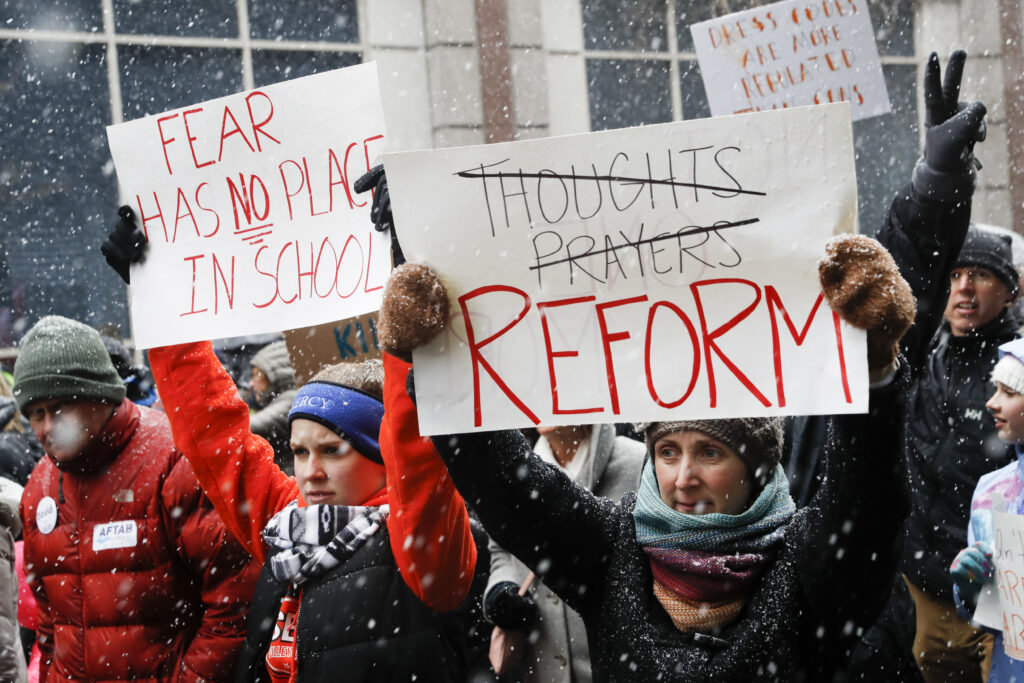Nearing his third month in office, President Biden moved away from talk of the coronavirus pandemic and addressed what his administration is calling an epidemic—gun violence. Following headlining mass shootings across several cities in the nation, including neighboring Atlanta, the President stepped into muddy water as he announced six executive actions toward gun control.
So what exactly is Biden proposing to end gun violence in his recent address? In cooperation with the Department of Justice, the purchase of ghost guns and stabilizing braces will be the first to bear regulatory restrictions unless proven unconstitutional.
“The term ‘ghost guns’ refers to kits that are sold in an 80% or less state of completion,” said UWG Political Science Professor and expert in gun policy, Dylan McLean. “They are finished by a hobbyist at home typically by carefully drilling several holes and then assembling a variety of pre-fabricated parts. Since they are not fully manufactured when they are sold, they can be shipped directly to a consumer without the need for a background check.
“Braces are devices that can be affixed to pistols and are designed to attach to or rest on the shooter’s forearm in a manner that stabilizes the firearm while shooting with only one hand,” continued McLean. “They physically look very similar to shoulder stocks and, as a practical matter, can be and often are used much like one. This can have the effect of creating a de facto short barreled rifle.”
Now, do these regulatory first steps have the potential to effectively reduce gun violence across the nation? McLean believes there will be minimal impact to what seems to be a rise in deadly shootings. However, citizens should be aware of how the new regulations, if upheld, might require them to take additional actions or face legal consequences.
“There is some evidence that a notable number of ghost guns are being used for criminal purposes,” said McLean. “So it is possible that eliminating them from the marketplace will eliminate a source of crime guns. However, the effects are likely to be marginal since there are many other ways that guns find their way to the illicit marketplace. Hobbyists will need to follow the implementation of this executive order closely. They may be required to obtain a background check and have a serial number affixed to their gun.
“Short barreled rifles are heavily regulated under the National Firearms Act (NFA),” continued McLean. “Pistols with braces do not differ from other pistols in the eyes of the law. So while braces can be a path around NFA requirements, they in no way alter the weapon’s potential lethality. So it is unlikely this order will have a meaningful impact on gun crime. It is likely, however, the Bureau of Alcohol, Tobacco, Firearms and Explosives (ATF) will determine that affixing a brace to a pistol makes it a rifle and subjects it to strict NFA regulations. Individuals who own these devices should follow this situation closely because violating the NFA can result in serious federal criminal penalties.”
The topic of gun control, or what advocacy groups are now calling gun ‘safety’, has long been passed around the political table for debate. Since the country’s founding and adoption of the Second Amendment, which gave citizens the right to keep and bear arms, it is difficult for any kind of legislation concerning firearms to be passed in fear those rights may be infringed upon. Coupled with the checks and balances system between branches, many say Biden’s recent actions to reduce gun violence proves his limited scope to impose such regulations.
“Like all provisions in the Bill of Rights, the rights protected by the Second Amendment are not absolute,” said McLean. “Our courts help determine where the lines are drawn and what sort of laws violate an individual’s rights. However, the U.S. Supreme Court has had less to say about the Second Amendment than it has other provisions of the Bill of Rights.”
The White House outlined additional measures to reduce gun violence including the publication of model ‘red flag’ laws—laws that without due process permit a gun to be taken away from an individual who some report as posing a threat to themselves or others. Former President Trump also proposed the adoption of such laws for the states.
Biden also announced further steps with the implementation of prevention programs and the nomination of David Chipman for director of the ATF—the main agency in the Department of Justice that regulates firearms and legal requirements. Chipman, who is a known gun control activist, is a senior policy advisor for the gun control advocacy group Giffords. The ATF will also be required to provide an annual report of firearm trafficking.
You may also like
-
UWG Prepares for 43rd Annual Media Day, Anticipates Valuable Networking Opportunity
-
The Psychology Student Association Offers Opportunities for Fun and Networking for Aspiring Psychologists at UWG
-
Table Talks Makes Its Return to the 43rd Annual Media Day
-
Connect and find Success at UWG’s Premier Media Networking Event
-
UWG Hosts Sip n’ Paint Event with Dine and Design to Celebrate Black History Month
